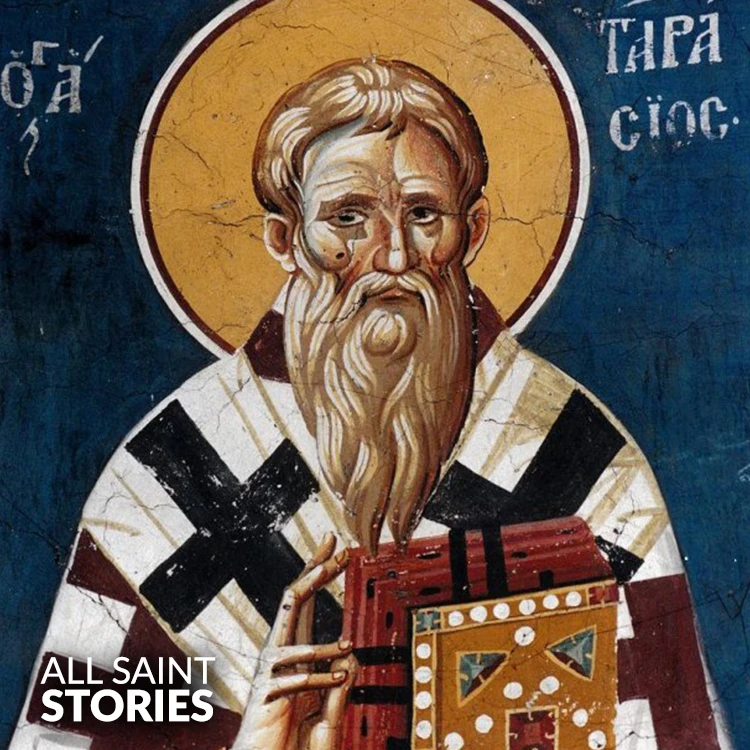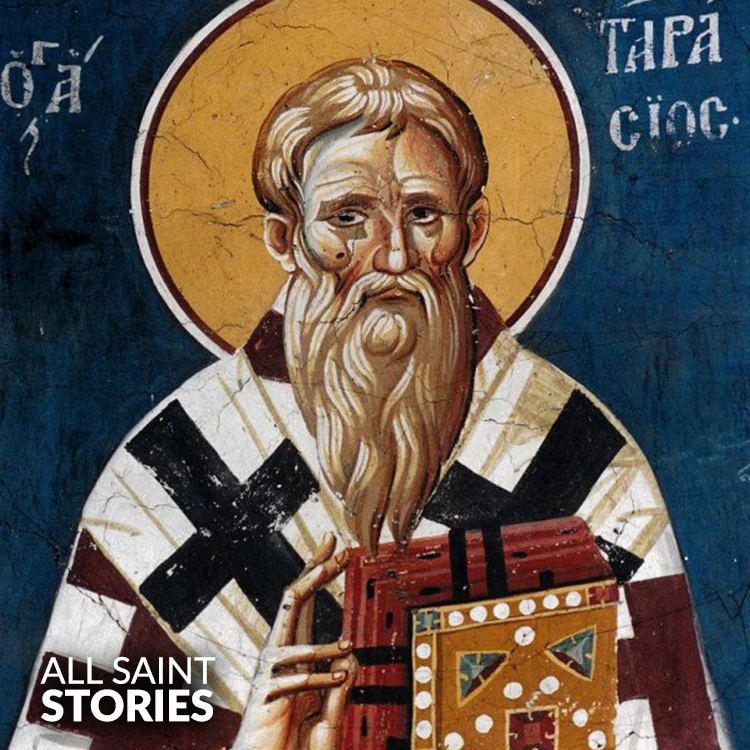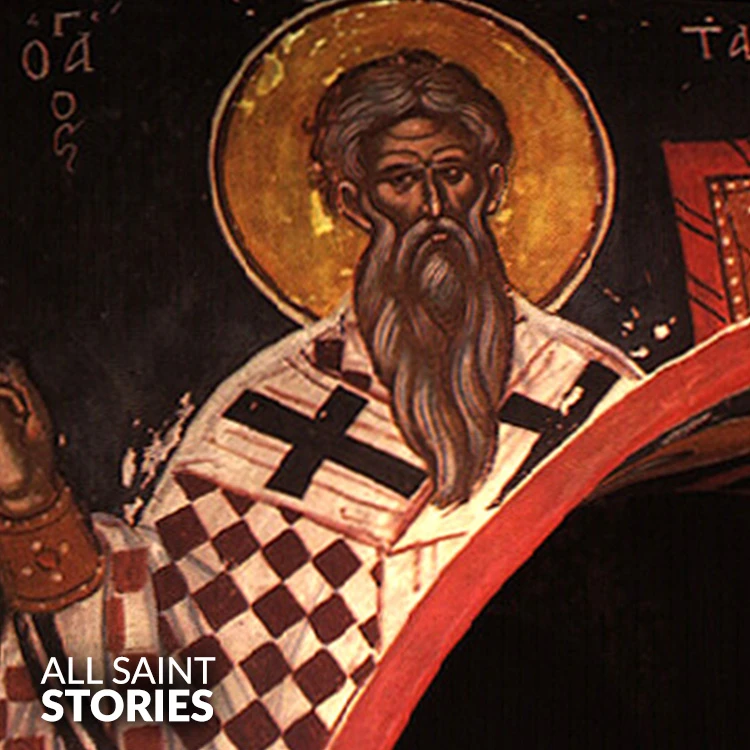O Holy Father Tarasius, defender of the icons and guardian of the faith, intercede for us before Christ our God. Strengthen our hearts in truth, guide our minds in purity, and teach us to serve others with love as you did. Amen.
ST. TARASIUS
ST. TARASIUS

St. Tarasius of Constantinople was a courageous 8th-century patriarch who defended the veneration of icons and stood firm against imperial pressure. His leadership during the Seventh Ecumenical Council helped restore Orthodox practices, and he is remembered for his humility, charity, and moral conviction.
St. Tarasius of Constantinople, born around 730 into a noble and well-educated family in the Byzantine capital, rose through the ranks of civil service, eventually becoming a senator in the imperial court. Despite his lay status, he was appointed Patriarch of Constantinople in 784 following the resignation of Patriarch Paul IV. Tarasius only accepted the post under the condition that an ecumenical council be called to address the pressing issue of iconoclasm, a divisive movement in the Byzantine Empire that banned the veneration of holy images. Upon his acceptance, he quickly received ordination through the diaconate and priesthood and was consecrated as patriarch.
As Patriarch, Tarasius played a leading role in convening the Second Council of Nicaea in 787, the Seventh Ecumenical Council. This council was monumental in Church history, formally condemning iconoclasm and restoring the veneration of icons. Tarasius presided over the council’s deliberations, which were attended by 367 bishops from across the Christian world. His efforts were instrumental in reuniting the Eastern and Western Churches on the issue of sacred images, and he emerged as a critical figure in defending Orthodox belief and practice.
Tarasius's leadership was marked not only by theological conviction but also by moral integrity. He lived an ascetic life, avoiding luxury and committing himself to serving the poor. During Pascha (Easter), he personally served meals to the needy and worked to create institutions that provided food and shelter. His governance reflected a pastoral heart deeply concerned with justice and mercy.
One of the most notable moments of his tenure came when Emperor Constantine VI sought to divorce his wife, Maria of Amnia, in order to marry another woman. Tarasius opposed the emperor's unlawful intentions and refused to bless the new union. He eventually excommunicated the emperor, an act of extraordinary courage given the political consequences. Although this put him at odds with the imperial court and led to temporary isolation, his integrity was later vindicated when Empress Irene deposed Constantine VI.
St. Tarasius remained patriarch until his death in 806. He died peacefully, and his final moments were marked by an intense spiritual experience where he is said to have repelled demonic accusations, with witnesses noting a radiant light on his face. He was buried in a monastery he founded along the Bosphorus, where many miracles were reported after his passing.
Venerated as a saint in both the Eastern Orthodox and Catholic traditions, his feast is celebrated on February 25 in the Eastern calendar and February 18 in the Western tradition. Tarasius is remembered not only for his theological contributions but for the pastoral care and courage that defined his life.
Video Not Found
The information on this website is compiled from various trusted sources. While we aim for accuracy, some details may be incomplete or contain discrepancies.
If you notice any errors or have additional information about this saint, please use the form on the left to share your suggestions. Your input helps us improve and maintain reliable content for everyone.
All submissions are reviewed carefully, and your personal details will remain confidential. Thank you for contributing to the accuracy and value of this resource.
Credits & Acknowledgments
- Anudina Visudhar (Malayalam) – Life of Saints for Everyday
by Msgr. Thomas Moothedan, M.A., D.D. - Saint Companions for Each Day
by A. J. M. Mausolfe & J. K. Mausolfe - US Catholic (Faith in Real Life) – Informational articles
- Wikipedia – General reference content and images
- Anastpaul.com – Saint images and reflections
- Pravachaka Sabdam (Malayalam) – Saint-related content and insights
We sincerely thank these authors and platforms for their valuable contributions. If we have unintentionally missed any attribution, please notify us, and we will make the correction promptly.
If you have any suggestion about ST. TARASIUS
Your suggestion will help improve the information about this saint. Your details will not be disclosed anywhere.
© 2026 Copyright @ www.allsaintstories.com




 English
English
 Italian
Italian
 French
French
 Spanish
Spanish
 Malayalam
Malayalam
 Russian
Russian
 Korean
Korean
 Sinhala
Sinhala
 Japanese
Japanese
 Arabic
Arabic
 Portuguese
Portuguese
 Bantu
Bantu
 Greek
Greek
 German
German
 Dutch
Dutch
 Filipino
Filipino